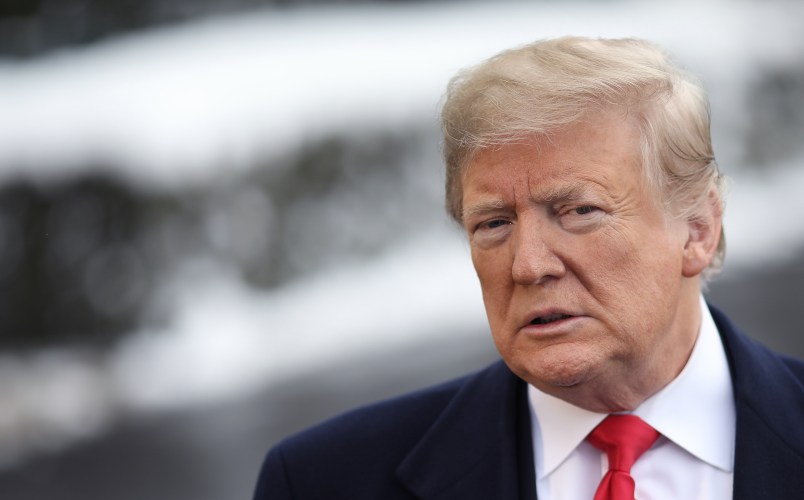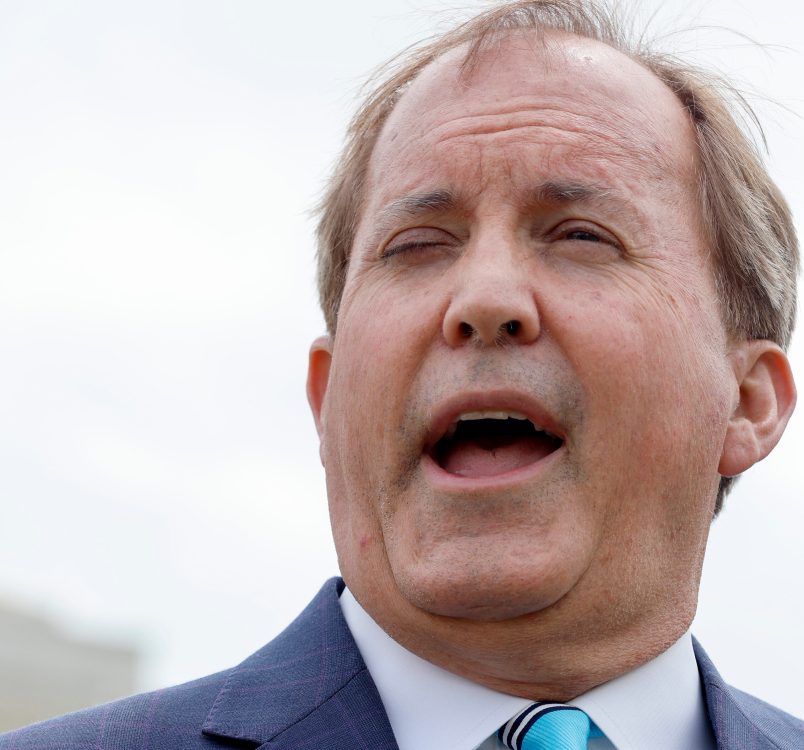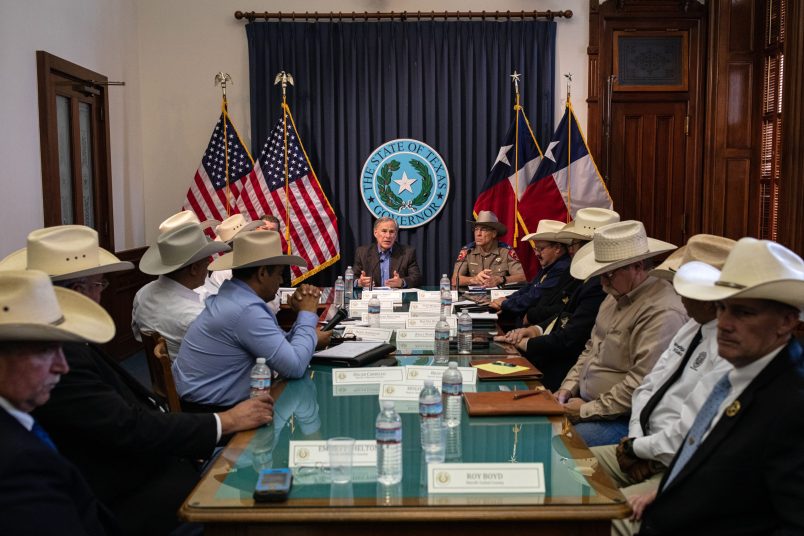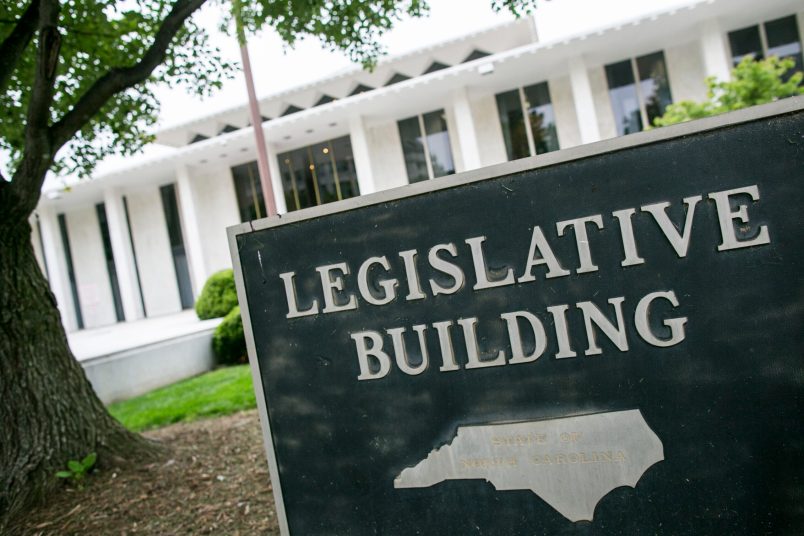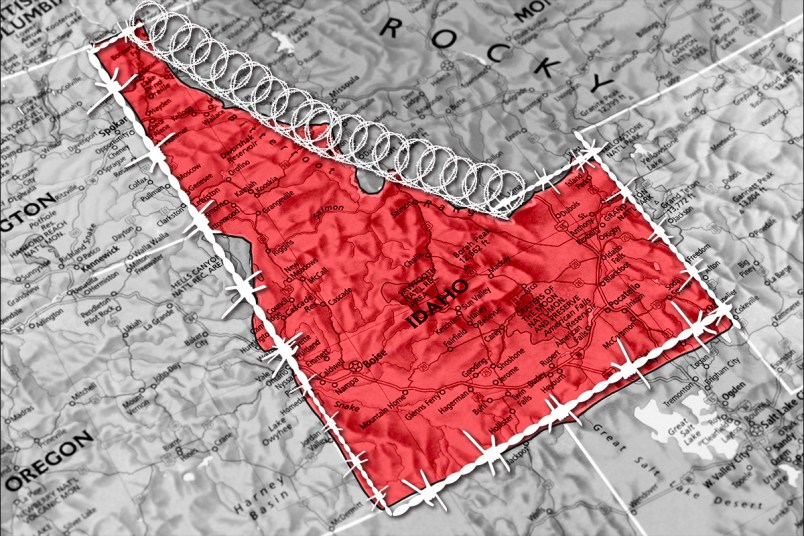Having suffered a major political setback in caving on his government shutdown demands for a border wall, President Trump this weekend returned to a favored pastime: making false claims about voter fraud.
58,000 non-citizens voted in Texas, with 95,000 non-citizens registered to vote. These numbers are just the tip of the iceberg. All over the country, especially in California, voter fraud is rampant. Must be stopped. Strong voter ID! @foxandfriends
— Donald J. Trump (@realDonaldTrump) January 27, 2019
This time, the allegations come from Texas, where — before Trump further twisted and amplified the claims — state officials were already facing skepticism about their assertions.
Here are five points about the allegations and why they’re being questioned:
President Trump took already shady voter fraud claims and then exaggerated them.
Trump’s claims — apparently inspired by a Fox News segment — that “58,000 non-citizens voted in Texas, with 95,000 non-citizens registered to vote” are false, and went beyond the inflammatory tone that Texas state officials took in unveiling the original allegations. Texas Attorney General Ken Paxton had initially touted the numbers on Twitter Friday afternoon. The numbers actually refer to matches the state made between voter registration records and documents submitted to the Department of Public Safety by drivers license or ID-seekers showing that they were not citizens.
VOTER FRAUD ALERT: The @TXsecofstate discovered approx 95,000 individuals identified by DPS as non-U.S. citizens have a matching voter registration record in TX, approx 58,000 of whom have voted in TX elections. Any illegal vote deprives Americans of their voice.
— Ken Paxton (@KenPaxtonTX) January 25, 2019
Paxton’s office did not respond to TPM’s inquiry Friday afternoon, but it appears his tweet was prompted by an advisory sent to local election officials by Texas Secretary of State David Whitley.
That guidance encourages local officials to vet the flagged registrants, but also cautions that the matches should be treated as “WEAK” matches. Local officials legally cannot remove the flagged registrants on the suspicion alone. They are instead recommended to send notices asking the registrants to submit proof of citizenship, and can only remove the individuals if they receive no response or if the individuals affirmatively asks to be removed.
As the Texas Tribune pointed out, the 58,000 voters who were flagged cast ballots across 22-year time span.
There are questions about the methods Texas used to flag the suspicious voters.
There are concerns about the potential for false positives with the method Texas used to flag the matches. There is potential that a flagged voter was a noncitizen when he or she obtained a driver’s license, but then, only after being naturalized, registered to vote.
Other states have seen claims of mass voter fraud shrink considerably under closer examination. In some cases, when it was found that a noncitizen did make it on to the voter rolls, it was because of a mistake or administrative error.
But the secretary of state’s office is standing by its methodology, telling the Tribune that the state is “very confident” that data D.P.S. handed over was “current.”
“We can’t see a situation in which this would produce a false positive,”spokesman Sam Taylor told the New York Times. “These are people whose last and most recent visits to D.P.S. showed them to be noncitizens through documentation that they submitted and which D.P.S. has kept on file.”
It will be up to local clerks to vet the allegations — and we may never know the results.
We might never know how accurate, or likely, inaccurate, Texas’ match system was. Under the law, only local officials can decide, after going through the proper process, who to purge from the rolls. According to the Tribune, it’s unclear if the updated tally of illegally registered voters will be released .
That means the most maximalist interpretation of the numbers could be Paxton’s — and Trump’s — last word on the matter, rather than the most accurate number. The state’s announcement comes just as the legislature is set to kick off its new term, so it remains to be seen whether lawmakers will try to use the unproven claims to justify more restrictive laws.
Voter ID does not address noncitizen registration concerns
Another faulty aspect of Trump’s tweet Sunday is its suggestion that voter ID would address noncitizen voter registration. Given that noncitizens can legally get driver’s licenses and other IDs, voter ID wouldn’t stop them from registering to vote or voting — if that was actually a problem.
Furthermore, Texas already has one of the strictest laws in the country. Advocates of voter registrations themselves have said the war over voter ID is over, and they are now moving onto registration battles where states seek aggressive purges of voter registration lists.
Previous allegations of mass noncitizen voting have not stood up to scrutiny
A closer look at these kinds of claims have typically found them to be gross exaggerations. Florida, under then-Gov. Rick Scott (R), touted in 2012 a list based on driver’s license data of 180,000 suspect illegal registrants. After further vetting, only 85 people were removed from the rolls. The state also ran into legal trouble over its removal process.
In Kansas, then-Secretary of State Kris Kobach was required by a court to prove the existence of substantial noncitizen voter registrations in order to implement a proof of citizenship registration requirement. At one point in the trial, he cited just five noncitizens voting in the state’s second most populous county over the last two decades.
In her decision striking down the requirement, U.S. District Judge Julie Robinson said that there was “no credible evidence that a substantial number of noncitizens registered to vote under” the state’s system of asking voters to sign an affidavit confirming their citizenship.


